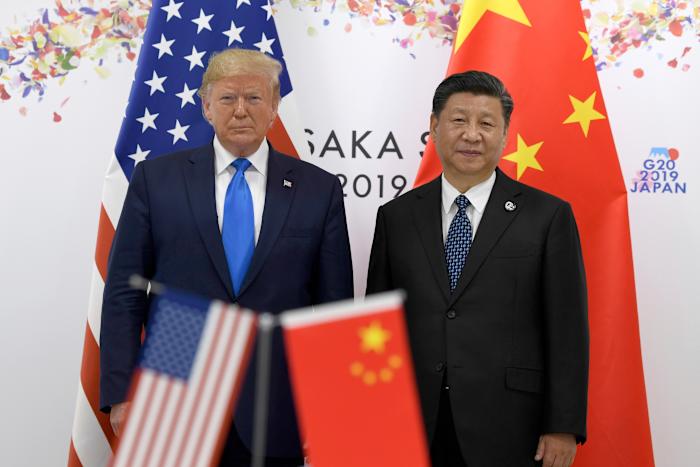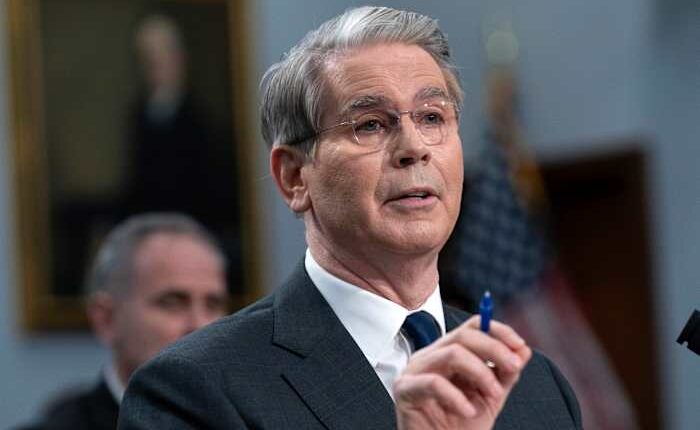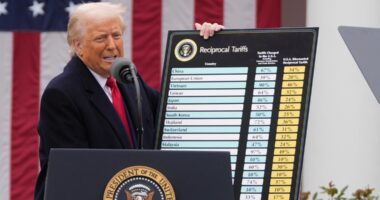
WASHINGTON – This weekend, top U.S. officials will hold discussions with a high-level Chinese delegation in Switzerland. These talks mark the first major dialogue between the two countries since President Donald Trump initiated a trade war by imposing hefty tariffs on imports.
The Trump administration announced that Treasury Secretary Scott Bessent and U.S. Trade Representative Jamieson Greer will engage with their Chinese counterparts in Geneva. These discussions are considered the most senior known interactions between the two nations in recent months. The timing of these talks coincides with mounting concerns in the U.S. market regarding the potential impacts of the tariffs on consumer goods prices and supply.
China, as the world’s largest exporter and second-largest economy, has borne the brunt of Trump’s trade war. Following Trump’s announcement of tariffs on April 2, China retaliated with its own tariffs, prompting Trump to perceive this response as disrespectful. Since then, both countries have been escalating tariffs on each other’s goods. Currently, U.S. tariffs on Chinese imports stand at 145%, while Chinese tariffs on U.S. goods are set at 125%.
American firms have already begun canceling orders from China, postponing expansion plans and hunkering down as a result of the tariff war.
Trump had claimed previously that the U.S. and China were holding negotiations on lowering tariffs, which Beijing has denied, saying Trump must first lower his stiff tariffs. Bessent earlier Tuesday testified to a House committee that the U.S. and China “have not engaged in negotiations” but “as early as this week,” the U.S. will be announcing trade deals with some of the largest U.S. trading partners.
The Chinese Commerce Ministry on Tuesday confirmed the meeting between its vice premier and Bessent in Switzerland.
“The Chinese side carefully evaluated the information from the U.S. side and decided to agree to have contact with the U.S. side after fully considering global expectations, Chinese interests and calls from U.S. businesses and consumers,” said a ministry spokesperson.
The spokesperson said China would not “sacrifice its principles or global equity or justice in seeking any agreement.”
Most economists have said the cost of the tariffs would get passed along to consumers in the form of higher prices for autos, groceries, housing and other goods. And the higher prices are already becoming a burden on U.S. consumers, who are in the biggest economic funk since the COVID-19 pandemic. Meanwhile, economists say the risk of a recession is growing.
Wendy Cutler, a former U.S. trade official and now vice president of the Asia Society Policy Institute, said the upcoming meeting is a welcome development.
“As the first face to face meeting between senior U.S. and Chinese officials since Trump’s inauguration, it’s an important opportunity to have initial talks on unwinding some tariffs, mapping out a path forward, as well as raising concerns,” Cutler said. “We should not expect any quick victories — this will be a process that will take time.”
In Switzerland, Bessent and Greer also plan to meet with Swiss President Karin Keller-Sutter, according to readouts from their respective offices.
Both Greer and Bessent had talked with their counterparts before the beginning of the trade war.
Greer told Fox News Channel last month that he spoke with his Chinese counterpart for over an hour before the trade war started. “I thought it was constructive,” he said, adding: “This is not a plan just to encircle China. It’s a plan to fix the American economy, to have a greater share of manufacturing as GDP, to have real wages go up, to be producing things instead of having an economy that’s financed by the government.”
And Bessent in February spoke with Chinese Vice Premier He Lifeng “to exchange views on the bilateral economic relationship,” according to a Treasury news release.
___
Associated Press writer Paul Wiseman in Washington contributed to this report
Copyright 2025 The Associated Press. All rights reserved. This material may not be published, broadcast, rewritten or redistributed without permission.

















